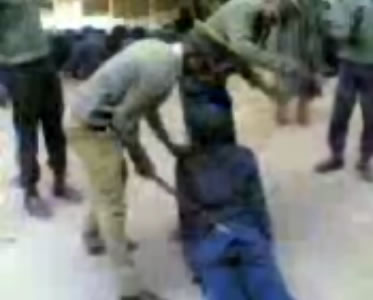Life beyond politics
Monday, June 8th, 2009 by Marko Phiri“There is life beyond politics and I hope with a bit of luck to experience that myself,” said British Defence Secretary John Hutton on announcing his resignation from the government of Gordon Brown on June 5, 2009.
And these are the same British chaps lampooned over the years by the Zanu PF cabal, the same Africans who have chosen politics as a career where wild riches are amassed beyond their wildest dreams. Take them out of the political office what do they have? Kind of reminds one of Africa’s career politicians doesn’t it? Once one is elected into office, you are in it for life. And this obsession is exactly what has fed or fanned political violence as unpopular leaders stoke the emotions of poor people and refuse to leave office and therefore politics.
For some reason they can never pursue other interests outside gladiatorial politics, those who left without putting up a fight have for example been appointed to mediate in some of the world’s hot spots, yet those who came after them have seen no reason why they should leave and pursue other interests.
Thank God for those nations who continue resisting attempts by idiotic leaders who seek to rewrite their constitutions in a bid to extend their rule as if that itself is informed by having done a swell job. On the contrary. They still want to amend constitutions even though the people they claim elected them into office are fed up and seek fresh minds to steer them away from perennial poverty.
So what do these career politicians who seek to amend constitutions and those who lose elections do? They unleash their supporters and the security forces on their perceived opponents to “quell unrest” and the blood on the streets thus defines African politics as informed by their unwillingness to make themselves useful elsewhere other than the realm of politics. It is a crying shame. Wacko Jacko sang about blood on the dance floor: these politicians have blood on their hands but they continue dancing! D for dancing ministers, right?
Within Zimbabwe’s context, it is interesting that the people who presided over the country’s ruin are celebrated for their education and insist on being addressed as such – remembering of course that some of the PhDs are honorary. So one would imagine they would easily find use elsewhere where no punches are thrown and no verbal WMDs are hurled.
Yet because they have destroyed all sectors of gainful employment, they find that they too will never find “proper” jobs outside active politics so they stick it out in bloody politics come hell or high water and urge supporters to cudgel anyone who chants a different political slogan! That is the odium African politics carries in its baggage thus we see that drive to personalise whole nations as leaders refuse to leave office and declare themselves life presidents – as if there was ever such a thing. But then African politicians typically live by that old dictum: make hay while the sun shines. And they sure do.










